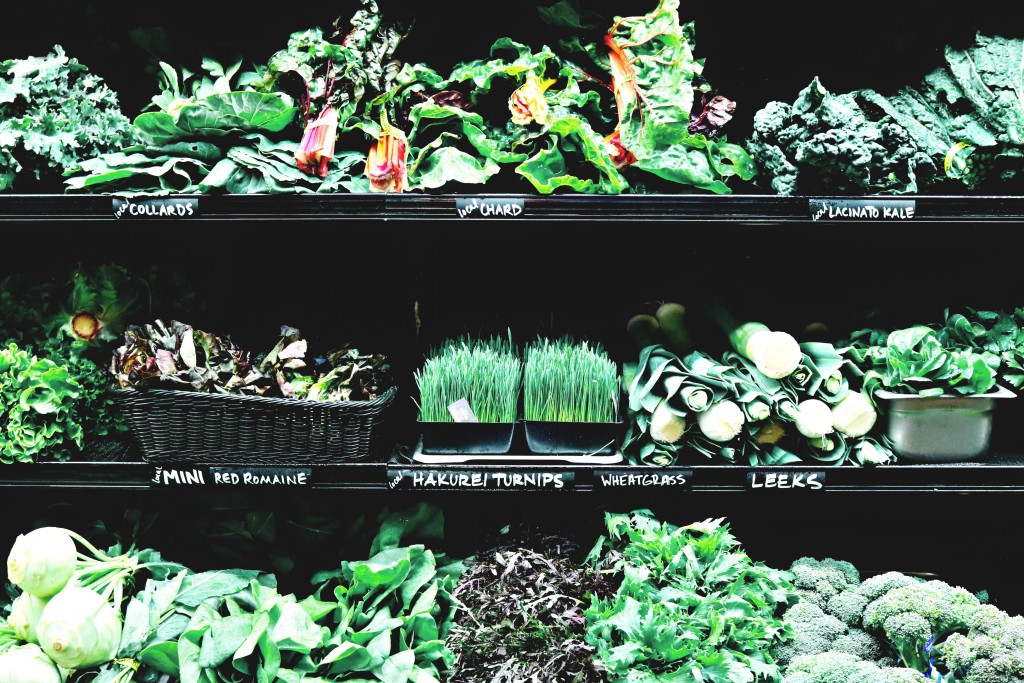If I was stranded on a remote island “Survivor” style and could only pick one class of veggies to bring with me, it would be the crucifers, without contest. Cruciferous vegetables (also known as Brassicas) include broccoli, broccoli rabe, cauliflower, cabbage, Brussels sprouts, kale, collard greens, turnips, turnip and mustard greens, arugula, watercress, bok choy (Chinese cabbage), kohlrabi, radishes, and daikon. Although all vegetable have nutritional benefits, the crucifers are superstars in the veggie world as they have been proven by research to assist in detoxification, stimulate the immune system, reduce degenerative damage in the nervous system, protect against cardiovascular disease, slow and even reverse decline of brain functioning and cognitive performance, and can help to restore balance to the endocrine system. Besides their stellar benefits to the bodies’ systems, crucifers have a great nutritional profile containing vitamins, minerals, and fiber that we need to maintain healthy elimination and weight.
There has been quite a bit of research conducted that has shown that increased consumption of cruciferous vegetables lowers the risk of contracting cancers including breast and prostate. The phytochemicals found in cruciferous vegetables can stimulate enzymes in the body that will remove carcinogens through the body’s’ detoxification pathways before they damage cells. By now you may be aware of the harmful effects stress can have on your body. Well oxidative stress, which occurs from the overload of harmful molecules called free radicals, accelerates our aging and can lead to disease or health conditions over time. When you consume large amounts of cruciferous vegetables, you reduce oxidative stress which in turn helps to reduce the risk of colon, lung, prostate, breast, and other cancers. In animal studies, cruciferous vegetables have been shown to reduce inflammation; which may point to an anti-inflammatory effect as one of the benefits for human consumption.
Just in case you aren’t convinced that #TeamCrucifer is the greatest, there are some vanity reasons to consume them as well. For those struggling with acne for hormonal reasons, cruciferous vegetables can provide some relief because they assist the body in restoring hormonal balance. This also makes consuming cruciferous vegetables wonderful for women struggling with fibroids or endometriosis who may have an issue of estrogen dominance. Whatever reason you chose to join #TeamCrucifer know that getting your greens in will help improve your overall health, skin, youthfulness, and vitality. -XO Raw Girl
References:
Abdull Razis AF, Noor NM. Cruciferous vegetables: dietary phytochemicals for
cancer prevention. Asian Pac J Cancer Prev. 2013;14(3):1565-70. Review. PubMed
PMID: 23679237.
APAPollock, R. L. (2016). The effect of green leafy and cruciferous vegetable intake on the incidence of cardiovascular disease: A meta-analysis. JRSM Cardiovascular Disease, 5, 2048004016661435. http://doi.org/10.1177/2048004016661435
Jiang Y, Wu SH, Shu XO, Xiang YB, Ji BT, Milne GL, Cai Q, Zhang X, Gao YT,
Zheng W, Yang G. Cruciferous vegetable intake is inversely correlated with
circulating levels of proinflammatory markers in women. J Acad Nutr Diet. 2014
May;114(5):700-8.e2. doi: 10.1016/j.jand.2013.12.019. Epub 2014 Mar 13. PubMed
PMID: 24630682; PubMed Central PMCID: PMC4063312.
Wu QJ, Yang Y, Vogtmann E, Wang J, Han LH, Li HL, Xiang YB. Cruciferous vegetables intake and the risk of colorectal cancer: a meta-analysis of observational studies. Annals of Oncology 2013; 24(4): 1079-1087.






